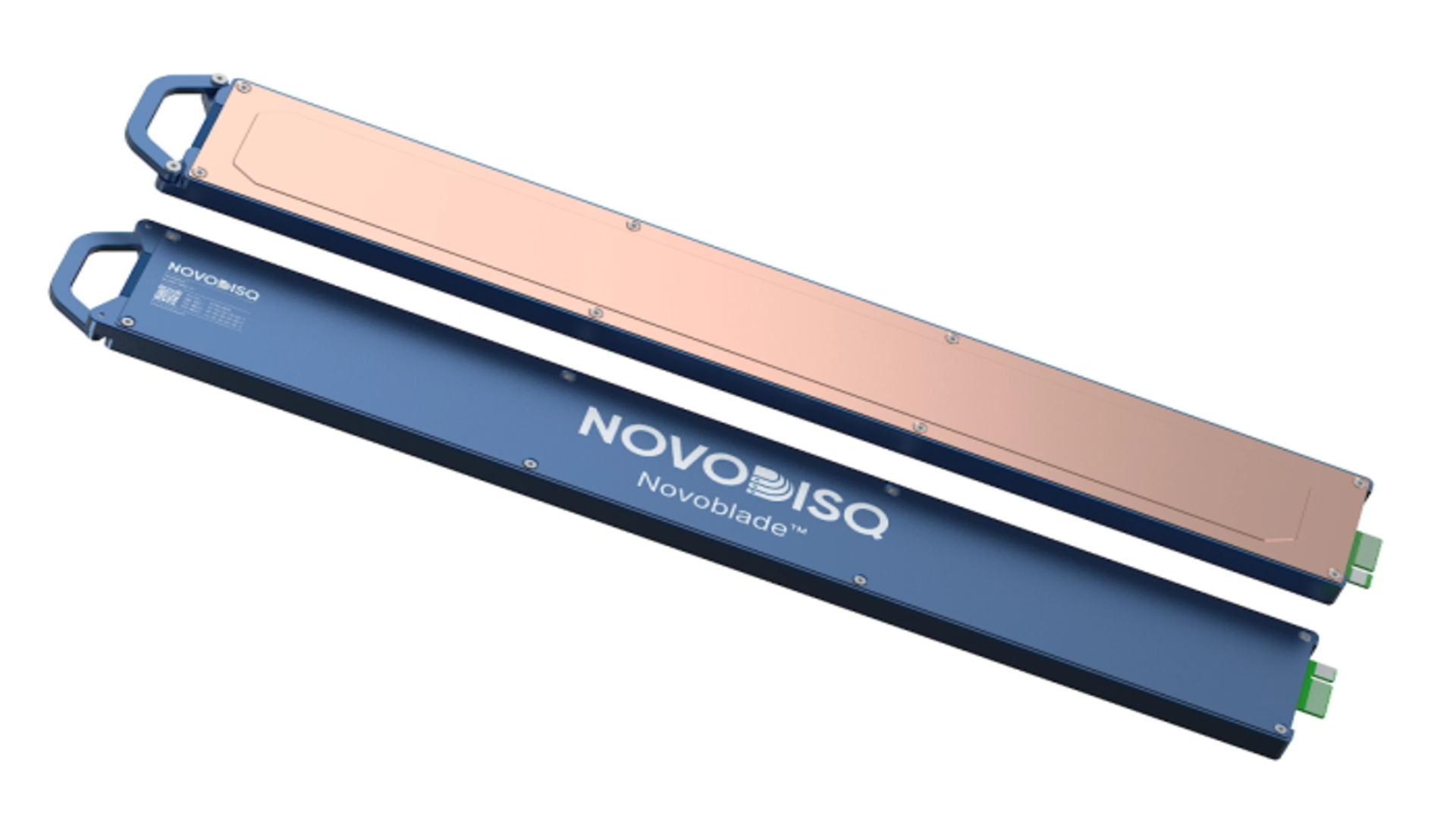Kiwi storage startup uses proprietary 144TB SSD to hit 230PB storage per 42U rack - but it will cost well over $2 million to get such a system
Each 2U enclosure with twenty blades offers 11.75PB density

Sign up for breaking news, reviews, opinion, top tech deals, and more.
You are now subscribed
Your newsletter sign-up was successful
- Novodisq claims 230PB rack capacity using proprietary 144TB SSDs
- Novoblade integrates compute, networking, and storage in dense blade servers
- Novodisq promises 95% lower power compared with conventional arrays
Novodisq told us that "The article uses an existing COTS SSD to estimate the capital cost for the Novoblade system. We are unable to share prices at this time but do note that Novoblade has been specifically designed to minimise TCO and product capital cost is only one part of this story. The cost of electricity, cooling, space, networking, maintenance and system lifetime add substantially to the value proposition. In addition, Novoblade is designed to aggressively scale-out. High-availability deployments can start from as little as three Novoblades and grow with the customer's needs. This provides customers with a high degree of flexibility in managing capex commitments. We have specifically designed Novoblade to provide our customers with a highly desirable TCO outcome. We have identified numerous use cases where this will be applicable and will be delighted to share this with you as we develop our market position. "
At the recent Flash Memory Summit, a new name from New Zealand surfaced in a bid to cause waves in the enterprise storage space.
Novodisq presented its Novoblade system, a platform built to combine dense storage, compute acceleration, and network capacity in a compact design.
The Novoblade modules are designed as blade servers, each offering 576TB of raw storage built on flash drives. The drives themselves are based on E2 form factor SSD units with capacities reaching 144TB per device.
How Novoblade is structured
The company says a 2U enclosure can hold up to 20 modules, which equates to 11.75PB of capacity in a single shelf.
Scaling this configuration across an entire 42U rack, Novodisq projects that storage can rise to 230PB.
Alongside the storage figures, Novodisq promotes Novoblade as a hyperconverged design that integrates compute resources directly into each blade.
These include ARM64 cores, FPGA resources, and optional AI or machine learning engines, with networking supported by 200Gbps or 400Gbps Ethernet.
Sign up to the TechRadar Pro newsletter to get all the top news, opinion, features and guidance your business needs to succeed!
The company positions this as a platform that can replace conventional NAS arrays, with up to 95% lower energy consumption. Such claims, however, are difficult to validate without detailed independent benchmarks.
While the theoretical capacity appears high, the price of such a system raises serious questions.
The company has not announced official figures, but estimates can be made from existing hardware, as a single 122.88TB SSD currently (August 2025) costs close to $14,000.
Using that as a reference, and accounting for Novoblade’s proprietary 144TB SSDs, a single blade with four drives could already exceed $60,000 before considering added compute and networking.
(ed: For clarity, the Novoblade E2 SSDs are fully compliant with the recently announced SNIA E2 Form Factor (SFF-TA-1042). Novodisq does not intend to artificially limit Novoblade E2 SSD compatibility with third-party systems supporting SNIA E2 enclosures. They told us, "We are committed to increasing our alignment with, and our contribution to, Industry Standards as we establish our position in the market.")
With 20 blades in a 2U enclosure, the total could approach $1.2 million. Extending this to a full 42U rack with 230PB of raw storage means costs would rise well beyond $2 million.
This positions Novoblade as an extremely dense solution, but one that only highly specialized organizations could justify financially.
On paper, these numbers suggest one of the densest deployments yet described, but practical use and performance remain untested.
Novodisq describes the Novoblade as both a storage server and a converged compute platform.
It can expose block, file, and object interfaces, or integrate into distributed systems such as Ceph or Lustre.
At the moment, major players in the storage field continue to focus on balancing capacity with performance.
Therefore, it remains uncertain whether Novodisq can provide not only the largest or fastest SSD arrangements but also sustainable pricing and support.
You might also like
- These are the best mobile workstations you can buy right now
- We've also listed the best mini PCs for every budget
- AWS just snapped up a load of custom Xeon chips for extra cloud power

Efosa has been writing about technology for over 7 years, initially driven by curiosity but now fueled by a strong passion for the field. He holds both a Master's and a PhD in sciences, which provided him with a solid foundation in analytical thinking.
You must confirm your public display name before commenting
Please logout and then login again, you will then be prompted to enter your display name.